Think about it – lots have been written about how media agencies drive the dynamic interactions between brands and consumers.
So, what is a media agency, and what do media agencies do?
If you’re seeking support with marketing content, data-driven strategies, or digital innovation, your curiosity to explore what media agencies do is on point.
Likewise, if you’re a go-getter who excels at turning ideas into success, maybe it’s time to launch your own agency. In fact, our 3 unique programs – Elite, Scale7, and Core – amp up your entrepreneurial journey.
Considering different types of media agencies, let’s explore the main types and weigh the pros and cons of working in or starting one. Once you find your fit, your journey begins!
What is a Media Agency?
A media agency comprises a team of experts who help businesses promote their brands through strategic marketing outreach, including paid media campaigns across various platforms.
Media agencies ensure your message hits the right crowd, whether it’s classic TV, radio, or the latest online buzz like emails, banners, and search ads.
 What Does a Media Agency Do?
What Does a Media Agency Do?
You could say that media agencies are like partners, almost an extension of the business itself. But what do they actually do?
For starters, while agency roles vary based on client needs and goals, some essential aspects define agency culture. Media agencies usually handle the following:
- Development: Creating content involves functions like writing, editing, producing, and filming – tasks central to the role of media agencies.
- Planning: Media agencies guide marketing products and services, offer insights on optimal timing and placement for adverts, and help clients make effective decisions about investing their marketing budget.
- Distribution: As experts in crafting ad campaigns for the best returns, media agencies help clients wisely distribute budgets across various channels.
- Assessment: Marketers, investors, and other stakeholders sign with media agencies to measure the success of advertising and marketing campaigns.
Media Agency Services Explained
In essence, media agencies are like friendly business advisors, shaping positive public images through smart strategies.
Media agencies vary in focus. Each agency’s unique processes and services are what sets them apart. Have a look:
- Some media agencies specialize in digital channels like paid search, email, and social media. Others stick to traditional media, including radio, print, and TV.
- Integrated agencies cover both, with dedicated teams for traditional and digital marketing.
- Agencies often offer creative services like ad writing, design, and creative advice based on their niche or focus areas.
Now that we’ve seen how media agencies are a bridge between brands, why not join the conversation with our Facebook community? You could connect with experts and share insights about media agencies while exploring new ideas together!
 Types of Media Agencies
Types of Media Agencies
With so many options out there, and when you’re just about grasping what a media agency is, aligning with the right type may seem overwhelming.
Let’s break it down and make it easier for you!
Digital Media Agency
Digital marketing agencies juggle PPC ads, SEO, creative content, and lead generation.
The goal is to get brands noticed or lure in fresh leads by providing a comprehensive suite of services, which include:
- A broad spectrum of data, including mobile type, location, behavior, and demographics, can be easily analyzed, resulting in more effective campaigns.
- Detailed reports of audience engagement with the brand’s online ads and content.
- Advanced targeting capabilities facilitate more precise digital ads.
- Numerous digital marketing niches give brands diverse opportunities for tailored strategies.
In a nutshell, when you want to elevate your brand’s online presence with targeted campaigns and comprehensive analytics, consider partnering with a digital media agency to unlock your full marketing potential.
Digital Agency vs. Media Agency
Once you figure out which to go with—a digital agency or media agency, you can make the most of your resources and connect with customers.
Here’s a simple comparison to help you make the right choice:
- Reach: Digital media agencies focus online, while traditional ones cover newspapers, print, radio, TV, and billboards.
- Targeting: Digital strategies offer advanced targeting and analytics, leveraging data points like location, device, demographics, and more. Traditional agencies shine in more localized advertising for specific audiences.
- Evolution: Digital advertising keeps getting smarter every year. With new tech and channels, it’s not just effective but also efficient.
- Trends: As ecommerce grows to 17% of US retail sales in 2024, retailers will lean towards digital ads. Though traditional agencies have shifted online, there’s still a market for traditional media services.
If you’d still prefer guidance, you could collaborate with a digital marketing mentor, such as us at Prospecting On Demand. We offer valuable insights on where to begin.
 Paid Media Agency
Paid Media Agency
Paid media is where the brand pays for advertising space. Think social media or search engines. They can also pop up in your Gmail inbox. Paid media facilitate:
- Quick access to new audiences, with capabilities to target potential buyers.
- Increased awareness and engagement with the brand through targeted ads and drive sales.
Nonetheless, paid media can be a bit risky. If an ad doesn’t work, it’s like throwing money away. So, before spending, ensure you have a solid plan in place.
B2B Media Agency
B2B media agencies are the go-to specialists for companies wanting to reach out and sell their products, services, or SaaS to other businesses. The following pointers will give you a concise understanding of a B2B media agency.
B2B agencies undertake to:
- Create custom content and ads for B2B interactions, covering everything from content creation to digital marketing and events.
- Craft and implement strategies to improve search ranking, considering around 78% of B2B buyers begin their purchase journey using Google Search.
- Leverage paid advertising to make the brand’s ad appear during searches, driving site traffic, demo sign-ups, newsletter sign-ups, and purchases.
 Media Buying Agency
Media Buying Agency
Media buying agencies are a brand’s allies, knowing its goals, crafting creative content, and securing prime ad spaces to elevate the brand. The significance of media buying agencies is evident from their purpose to:
- Implement media planning, target audience research, and selection of media mix.
- Create actionable media plans aligned with client goals.
- Negotiate rates and purchase relevant ad space for clients.
- Optimize ad spends across various channels like display, digital, audio, video, native, social media, and connected TV to maximize impact.
- Share industry insights, measure campaign results, and ensure successful campaigns.
Notably, some agencies focus solely on buying media space; their job is finished once the purchase is done.
All things considered, a media buying agency is budget-friendly compared to a full ad agency. However, given the competitive scenario, you could consider our free assessment and join our optimization program to elevate your strategy.
 Creative Media Agency
Creative Media Agency
Every time you scroll through your social feeds guess who’s behind those compelling posts and ads. Let’s take a quick look at what are creative media agencies, their role, and trends shaping the industry:
- Creative media agencies have different specialties. Some focus on social media, creating content, and ads.
- Some creative agencies excel in crafting graphics, videos, and websites to showcase your brand online.
- Embracing AI and other emerging technologies like AR and VR, creative media agencies offer highly personalized marketing, tailoring brand messages that resonate.
In short, a creative media agency can be pictured as a brand’s go-to team for everything visually appealing – logos, graphic design, brand design, videos, web design, and more.
Creative Agency vs. Media Agency
Media agencies and creative agencies may sound alike, but they’re not. Both bring marketing mojo, but each has its unique flavor. Let’s unmask!
- Agency specialties: Creative agencies are marketing pros who craft and back marketing initiatives, while media agencies focus on traditional, digital, or both media types.
- Tactics: Media agencies amp up marketing with diverse tactics. Creative agencies? They’re the troubleshooters, filling gaps in marketing efforts.
- Design vs. Distribution: Creative agencies weave brand designs, web magic, graphics, and videos. Media agencies handle in-house media planning. Different strokes, same goal-making brands shine!
- Campaign outcomes: Creative agencies whip up compelling marketing assets, sometimes passing the campaign hassle to media agencies. Media maestros advise strategy and crunch analytics.
 Social Media Agency (SMMA)
Social Media Agency (SMMA)
Like a chef perfects a recipe, SMMAs use their expertise in the SMMA niche for strategy, content creation, and forging audience connections to enhance a business’s social media presence.
Looking for a social media makeover? Presenting what is a media agency in the SMMA context and the services you ‘didn’t know you needed’ but absolutely do:
- SMMAs handle diverse content creation, keeping up with platform algorithms for optimal posting times.
- Provide proactive customer support by managing messages and tweets, ensuring a robust online presence.
- Run targeted, budget-friendly campaigns on platforms for accelerated growth and cost-effective results, with Facebook and Instagram leading the charge in the US.
- Connect businesses with suitable influencers; SMMAs leverage influencer popularity for brand promotion.
- Provide insightful analyses, showcasing growth metrics, ROAS, and post-performance to track progress and accountability.
Media Agency vs. Advertising Agency
Media agencies boost your online and offline presence using various channels and strategies.
Conversely, advertising agencies are like custom content creators for specific audiences.
Here’s the scoop on their differences:
- Purpose: To showcase your brand, go for an advertising agency. If you need to increase your sales, boost your market share, or enhance your offering, connect with a media agency.
- Focus: Ad agencies focus on making the message stand out, while media buying experts shine in the spotlight of choosing the perfect media channel.
- Approach: Media agencies dive deep into customer and competitor vibes to create solid advertising and media strategies. Meanwhile, advertising agencies craft content and feed it on different media channels.
- Skill sets: Media buying agencies nail the media game, strategizing and planning like pros. Meanwhile, advertising agencies take the reins on the whole marketing shindig, crafting killer strategies and plans for their clients.
Summing up, the media team sometimes decides first; at other times, the creative team calls the shots on where and how ads will be placed. Everything considered, media and advertising play the field with different goals, methods, and skills.
Are you wrestling with the eternal question: media plan or creative? Discover how we at Prospecting On Demand empower you to achieve financial freedom and build valuable business assets. Together, let’s turn uncertainty into vast possibilities!
 Pros and Cons of Working with a Media Agency
Pros and Cons of Working with a Media Agency
Now that you understand what a media agency is, are you looking to team up with one? An informed decision can unlock possibilities but requires careful consideration. Therefore, let’s break it down – the good and the not-so-good.
Pros
- Domain expertise: Media agencies bring valuable industry know-how, contacts, and quick insights, giving your strategy a head start.
- Efficiencies: Their industry know-how lets agencies execute plans swiftly, tapping into ready-made networks and saving your business time and effort.
- Results-driven: Agencies stay focused on outcomes, ensuring consistent progress in their plans, even when faced with unexpected in-house disruptions.
- Negotiation skills: Media agencies leveraged combined client budgets for better deals. Furthermore, agencies buy ads in bulk, stretching your budget for stand-out campaigns.
- Research: Agencies conduct thorough research to deliver your needs without breaking the bank.
- Fresh perspective: Media agencies offer unbiased views on your advertising goals – no channel favorites.
- Time-saving: Acting as your primary contact, media agencies save time, letting you focus on your business hassle-free!
Cons
- Contract ambiguity: Contracts might be unclear on pricing or deliverables, with structures like percentage-based fees causing ambiguity.
- Data authenticity: Incomplete reporting and limited real-time metrics access can be common hurdles.
- Hidden costs: Non-transparent media buying practices might sneak in undisclosed fees and markups, potentially surpassing your budget.
- Control and security: Handing over control when hiring an agency demands careful selection to ensure alignment with your brand. Robust security measures are crucial as agencies handle sensitive data.
- Coordination challenges: Working with a remote agency and changes in account teams can pose communication challenges, emphasizing the need for clear expectations and lines of communication.
 Pros and Cons of Starting a Media Agency
Pros and Cons of Starting a Media Agency
Starting your own media agency may fulfill a long-cherished dream, but it’s crucial to consider the pros and cons before diving in.
If you’re new or have limited experience, assess some of the key challenges and rewards listed below realistically:
Pros
- Leadership role: You can lead your media agency with complete control, implementing business strategies to make your vision a reality.
- Creative freedom: Launching your agency means no creative constraints – shape campaigns and strategies freely, aligning them with your unique vision.
- Flexible work environment: No cubicle constraints! You can enjoy a flexible schedule, crafting a work-life balance tailored to your preferences.
- Diverse projects: As a media agency owner, you can choose projects that spark your passion, ensuring a dynamic and diverse workload.
- Entrepreneurial growth: There’s the opportunity for entrepreneurial growth – from brand building to expanding services, it’s all in your hands.
- Direct client relationships: You can establish direct relationships with clients, understand their needs firsthand, and tailor your services to meet those requirements.
Cons
- Stiff competition and need for differentiation: Media agencies face tough competition. For instance, the top four media agencies in the US rake in 40% – 70% of revenues.
- Building and managing a team: Scaling involves legalities, recruiting, and training, requiring a shift from marketing to diverse business skills.
- Commitment and costs: Running a media agency involves dedication. Self-employment comes with both costs and time commitments.
- Inconsistent income: Inconsistent demand impacts revenue, and working on commission means varying paychecks. Budget wisely for slow periods.
- Learning process: Starting your own agency means no upper management safety net. As every decision rests on you, the learning curve might feel overwhelming.
Conclusion
Media agencies are strategic partners in shaping a brand’s marketing journey and amplifying its presence.
Whether you’re teaming up with an agency or launching your own, navigate the pros and cons wisely. If you need an experienced guide with the latter, please reach out to us for a complimentary assessment and confidently find your path.









